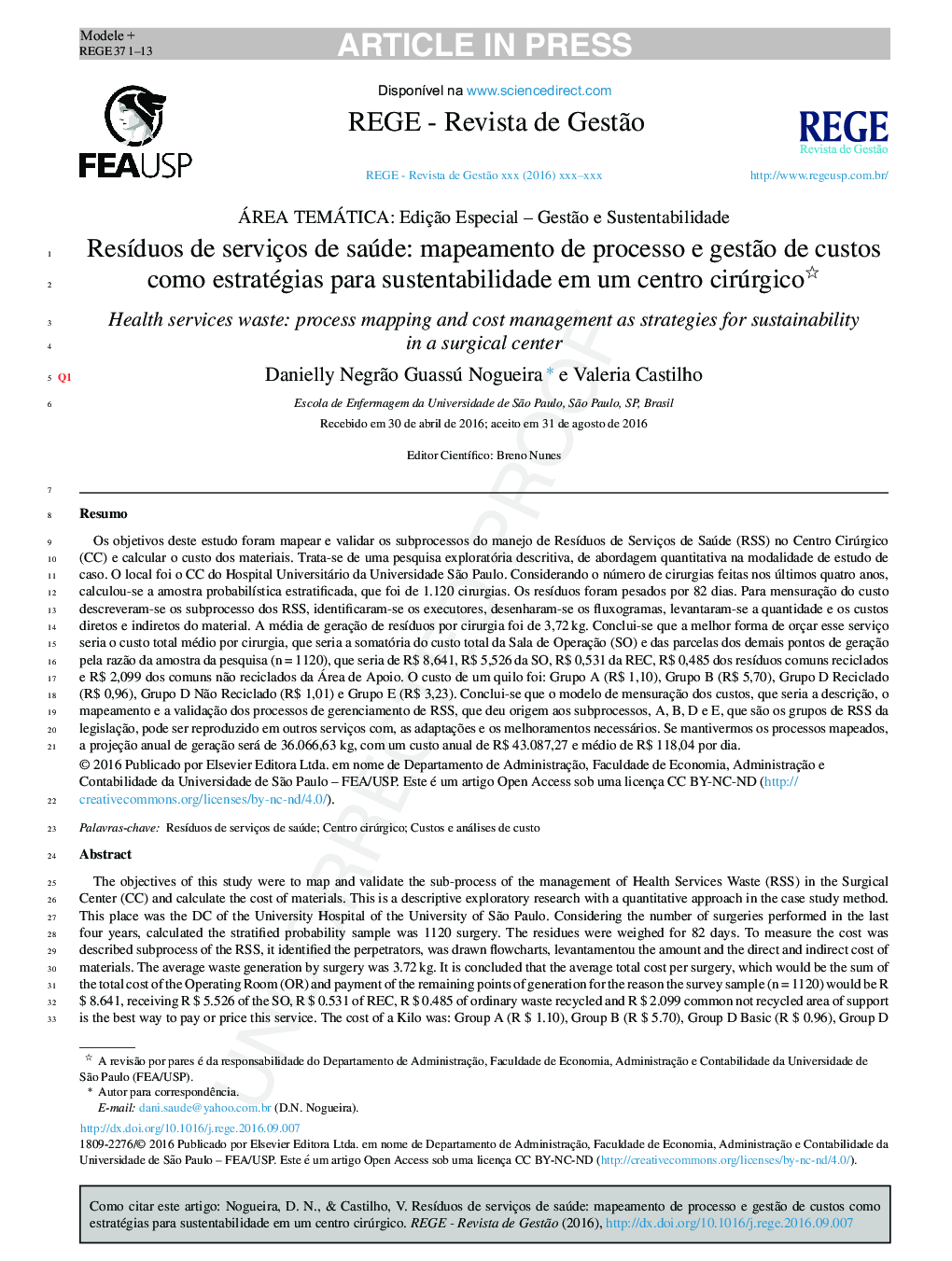| Article ID | Journal | Published Year | Pages | File Type |
|---|---|---|---|---|
| 7437240 | REGE - Revista de Gestão | 2016 | 13 Pages |
Abstract
The objectives of this study were to map and validate the subâprocess of the management of Health Services Waste (RSS) in the Surgical Center (CC) and calculate the cost of materials. This is a descriptive exploratory research with a quantitative approach in the case study method. This place was the DC of the University Hospital of the University of São Paulo. Considering the number of surgeries performed in the last four years, calculated the stratified probability sample was 1120 surgery. The residues were weighed for 82 days. To measure the cost was described subprocess of the RSS, it identified the perpetrators, was drawn flowcharts, levantamentou the amount and the direct and indirect cost of materials. The average waste generation by surgery was 3.72 kg. It is concluded that the average total cost per surgery, which would be the sum of the total cost of the Operating Room (OR) and payment of the remaining points of generation for the reason the survey sample (n = 1120) would be R $ 8.641, receiving R $ 5.526 of the SO, R $ 0.531 of REC, R $ 0.485 of ordinary waste recycled and R $ 2.099 common not recycled area of support is the best way to pay or price this service. The cost of a Kilo was: Group A (R $ 1.10), Group B (R $ 5.70), Group D Basic (R $ 0.96), Group D No Recycled (R $ 1.01) and since the group E (R $ 3.23). We conclude that the measurement of the cost model, which would be the description, mapping and validation of RSS management processes, which led to the subâprocesses, A, B, D and E, which are the RSS groups of legislation can be replicated in other services with the adaptations and improvements needed. If we keep the processes mapped to the annual projected generation will 36,066.63 kg with an annual cost of R $ 43,087.27, with an average cost of R $ 118.04 per day.
Related Topics
Social Sciences and Humanities
Business, Management and Accounting
Strategy and Management
Authors
Danielly Negrão Guassú Nogueira, Valeria Castilho,
